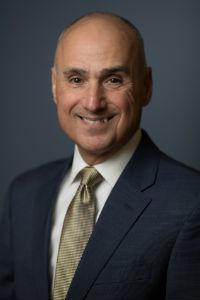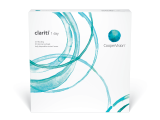Applications are now open for 2019 Best Practices. As we look ahead to next year, our current honorees took some time to share their favorite pearls for effective practice management. Read on to hear what they had to say.
“For me, the best part of optometry is constantly trying new things, and always striving to be better. I've been fortunate to surround myself with colleagues who are brilliant clinicians, diagnosticians, and business people. Not sure how to treat and manage dry eye better? Find a colleague who does this well and ask if you can shadow them for the morning. Want to improve your capture rate and sell more second pair sales, but don't feel comfortable in the optical? Join a study group or attend an industry meeting and ask questions and observe. Want to increase your daily disposable sales? Ask your contact lens rep if there is a doctor in your area who does this successfully and find out the words they are using. My best and most successful ideas have come from other doctors!” -Jennifer Stewart, OD

"While keeping up with technology helps with our diagnostic/treatment skills, and specialization helps to distinguish us from other practitioners, one of the best practice management tools I've used throughout my career involves just a paper, pen, and phone. When I see a patient with, say, a corneal abrasion, I have a simple form in the exam room where I can write down their name, number, and any notes. I can add other patients to the list as the day progresses (even, say, calling a new patient to see if he/she was pleased with the care), and when I get home, I call to see how the patient(s) is(are) doing. I do care about my patients and these brief calls help to convey that message while helping to manage their treatment. In our office, our "tag line" is "where modern technology meets old-fashioned care," and these "Care Calls" are one of the ways we live that motto." – Stephen Cohen, OD

My best practice management tip would be to avoid complacency at all costs. Nearly every aspect of practice can be regularly improved upon, and it can be difficult to see the need for change when you become used to how things are normally done. Walk though your practice like a patient and try to imagine ways in which office flow and procedures could be changed or improved upon on a regular basis. Strive to be in front of industry trends, and stay up to date on current research, and be in contact with other practice owners to share best practices. Change is not always for the better, but not ever changing is almost certainly going to end up being worse for your practice and your patients in the long run. -Roxanna Potter, OD, FAAO

“One thing that really makes a difference in the success of a practice have been staying ahead of the curve with technology. Find your niche and lean into it with quality products that you truly believe in. But most importantly, always strive to provide that “Wow!” patient experience that sets you apart from all others.” -Carrie Alfieri, OD

“Pay attention to detail in every aspect of your practice. It is the best way to create an experience that will exceed patient expectations and help differentiate your practice from others.” -Carmen Castellano, OD, FAAO

What makes your practice a Best Practice? Tell us now by applying at the Best Practices web site.





